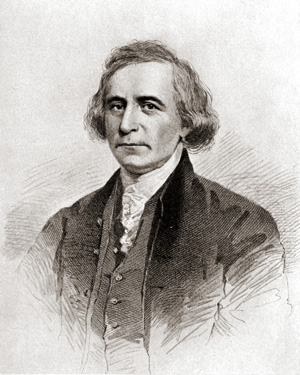On the British Blockade
Philip Freneau
And Expected Attack on New York, 1814
Old Neversink,* with bonnet blue,
The present times may surely rue
When told what England means to do:
Where from the deep his head he rears
The din of war salutes his ears,
That teazed him not for thirty years.
He eastward looks toward the main
To see a noisy naval train
Invest his bay, our fleets detain.
What can be done in such a case?—
His rugged heights the blast must face,
The storm that menaces the place.
With tents I see his mountain spread,
The soldier to the summit led,
And cannon planted on his head:
From Shrewsbury beach to Sandy Hook
The country has a martial look, A
nd quakers skulk in every nook.—
What shall be done in such a case?—
We ask again with woful face
To save the trade and guard the place?
Where mounted guns the porte secure,
The cannon at the embrasure,
Will british fleets attempt to moor?
…
To make a brief of all I said—
If to attack they change blockade
Their godships will be well repaid
With water, scalding from the pot,
With melted lead and flaming shot,
With vollies of—I know not what,
The british lads will be so treated:
Their wooden walls will be so heated,
Their ruin will be soon completed.
Our citizens shall stare and wonder—
The Neversink repel their thunder
And Cockburn miss a handsome plunder.
(Extract)
*Author's Note: The highlands, a little southward of Sandy Hook; being a tract of bold high country, several thousand acres in extent; to the southward of which there is no land that may be termed mountainous, on the whole coast of the United States to Cape Florida. The real aboriginal name of this remarkable promontory was Navesink, since corrupted into Neversink.—Freneau's note.
Neversink is now called Navesink again. Cochrane was one of the British Captains.
